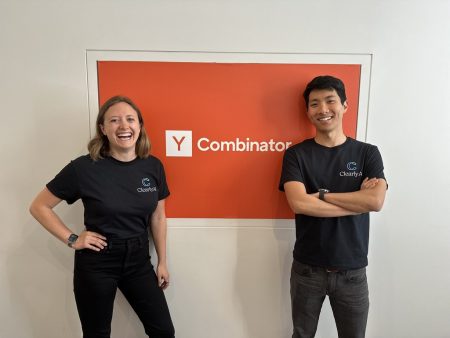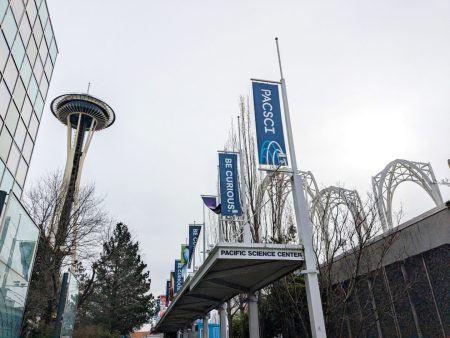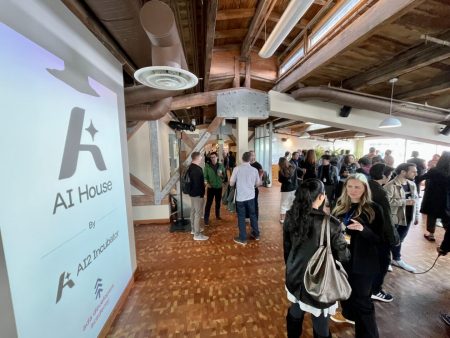Tech Titans Rally Behind Trump’s Vision for American Innovation
In an impressive gathering that highlighted the intersection of technology and policy, Microsoft’s Satya Nadella and Bill Gates joined other tech luminaries at a high-profile White House meeting with President Donald Trump on Thursday evening. The summit brought together some of the most influential minds in technology, creating a powerful display of industry support for American innovation and technological leadership. What unfolded was not merely a series of corporate announcements but a meaningful dialogue about America’s technological future, particularly in artificial intelligence. The meeting had the atmosphere of a high-stakes poker game, with Trump urging each executive to reveal their commitments to America’s future – essentially asking them to ante up for the nation’s technological advancement. This gathering represented a significant moment for the tech industry’s relationship with the administration, as leaders combined praise for the President with substantial promises to invest in U.S. infrastructure, manufacturing, and AI development.
Microsoft CEO Satya Nadella articulated a vision centered on maintaining America’s technological edge through innovation and fostering global trust in U.S. technology. His message was clear: American tech leadership depends on creating conditions where “the rest of the world can not only use our technology, but trust our technology more than any other alternative.” Nadella highlighted AI education and workforce training as “perhaps the most defining issue” for the future, acknowledging First Lady Melania Trump’s efforts to place skills development at the heart of the administration’s AI initiatives. This emphasis on trust and education underscores the dual challenge facing American tech companies – developing cutting-edge AI while ensuring the workforce and global markets are ready to embrace these technologies responsibly. Microsoft’s commitment materialized in concrete form with the announcement of 12 months of free Microsoft 365 with Copilot for every U.S. college student, expanded access for schools, and $1.25 million in educator prizes as part of the Presidential AI Challenge – tangible steps toward realizing Nadella’s vision.
Bill Gates brought a unique perspective to the table, bridging his technology legacy with his “second career” in philanthropy. Gates painted an optimistic picture of AI’s potential to transform global health, describing how it could serve as “a doctor for everyone in Africa,” provide farmers with enhanced agricultural guidance, and create new educational opportunities for children worldwide. Drawing a compelling parallel to Operation Warp Speed – the government’s accelerated COVID-19 vaccine development program – Gates suggested that with proper support, AI could help achieve similar breakthroughs in areas like HIV and sickle cell disease research. His vision represented a powerful reminder of technology’s capacity to address humanity’s most pressing challenges when innovation is properly harnessed and supported. Notably absent from Gates’ remarks was any reference to the congressional hearing held earlier that day featuring Robert F. Kennedy Jr., the Health and Human Services secretary whose views on vaccines have generated controversy. When questioned about Kennedy later in the meeting, Trump described him as “a very good person” with “different ideas,” adding that he appreciated Kennedy’s distinctive approach.
The roundtable assembled an extraordinary collection of tech industry leaders beyond just the Microsoft contingent. OpenAI’s Sam Altman, AMD CEO Lisa Su, Apple’s Tim Cook, Meta CEO Mark Zuckerberg, and Google’s Sundar Pichai and Sergey Brin all participated in what Wired somewhat cynically described as an event that felt like “passing a camera around to take turns wishing a distant, unloved uncle a very happy Thanksgiving.” Despite this characterization, the substance of the commitments revealed genuine industry investment in America’s technological future. Amazon pledged to train 4 million learners and 10,000 educators by 2028, supported by $30 million in AWS credits and $1.5 million in cash prizes related to the AI Challenge. Google committed an impressive $1 billion over three years for education and job training, including $150 million specifically for AI education, free access to its Gemini for Education model for every U.S. high school, and an expansion of its accelerator program to 200 colleges across the country.
The comprehensive approach to AI development continued with IBM’s announcement of plans to train 2 million American workers in AI skills over the next three years through its IBM SkillsBuild program. Meanwhile, Code.org outlined ambitious targets to engage 25 million learners in the “Hour of AI” during the current school year, build AI educational pathways in 25 states, and launch a free high school AI course expected to reach 400,000 students by 2028. These commitments reflect a broader recognition within the tech industry that AI’s potential can only be fully realized through widespread education and skills development. The collective pledges from these industry leaders amount to billions of dollars in investments and millions of educational opportunities – a clear acknowledgment that America’s technological leadership requires not just corporate research and development but a comprehensive approach to building a technologically literate workforce and society.
This White House meeting represents a pivotal moment in the evolving relationship between the tech industry and government policy. The assembly of tech titans making substantial commitments to American innovation demonstrates the industry’s recognition of the critical role government partnerships play in addressing the challenges and opportunities presented by AI and other emerging technologies. While critics might view the gathering as performative, the concrete financial and educational commitments announced suggest genuine industry investment in ensuring America maintains its technological edge. As AI continues to transform industries, economies, and societies, the partnerships formed and strengthened at meetings like this will likely shape how these powerful technologies are developed, deployed, and regulated. The stakes are high – not just for corporate profits or political capital, but for America’s position in the global technology landscape and the opportunities available to its citizens in an increasingly AI-driven world.














